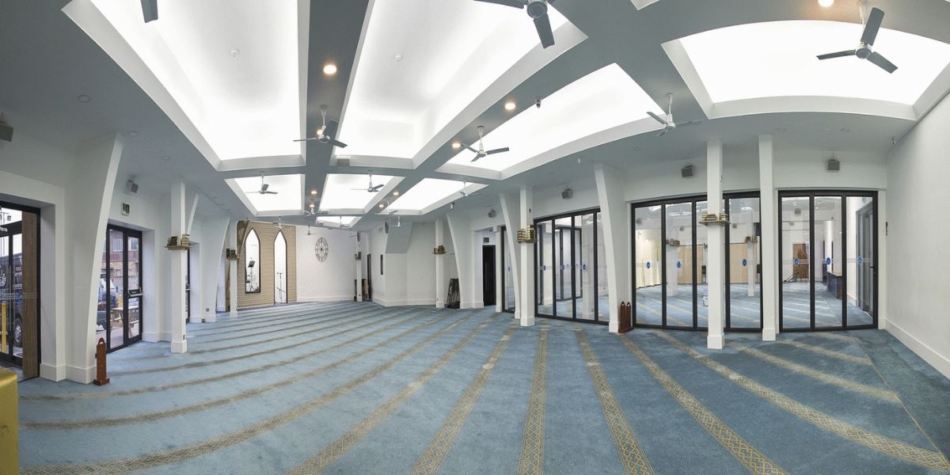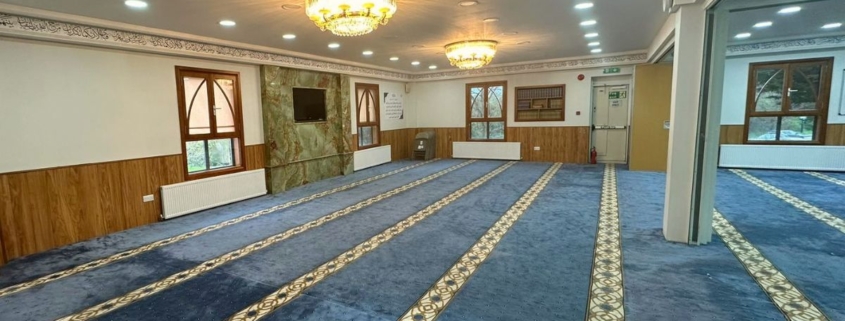The Role of Mosques in Community Development Today: Reviving Their Multifaceted Purpose
Mosques in the Community have always been more than places of worship. Historically, they served as hubs for education, social reform, and community development. In today’s fast-paced world, mosques continue to play a pivotal role in fostering unity and addressing societal challenges. As communities evolve, mosques adapt to meet contemporary needs, becoming centres of empowerment, collaboration, and inclusivity.
Historical Role of Mosques
From the time of Prophet Muhammad (PBUH), mosques were central to community life. The Prophet’s Mosque in Medina, for example, was not only a place for prayer but also a centre for education, governance, and social gatherings. This tradition underscores the mosque’s inherent responsibility to serve as a cornerstone for holistic development.

Modern Contributions of Mosques to Community Development
Today, mosques are instrumental in addressing the spiritual, educational, and social needs of their communities. Their influence extends beyond religious practices, playing a significant role in shaping societies.
Spiritual Growth and Guidance
- Mosques provide a sanctuary for Muslims to strengthen their connection with Allah.
- Daily prayers, Friday sermons, and spiritual retreats help nurture faith and morality.
- Counselling services address personal challenges, offering Islamic perspectives to navigate life’s complexities.
Educational Initiatives
- Many mosques host Quranic classes, Arabic language courses, and Islamic studies for children and adults.
- They serve as venues for seminars, workshops, and lectures on contemporary issues such as mental health, environmental responsibility, and financial literacy.
- Libraries within mosques promote lifelong learning and access to knowledge.
Social Welfare Programs
- Mosques often organize charity drives, including food distributions, clothing donations, and assistance for those in need.
- They provide financial support through zakat and Sadaqah programs, ensuring community members have access to basic necessities.
- Support for refugees, the homeless, and other marginalized groups is also a common initiative.
Youth Empowerment
- To engage younger generations, mosques host youth programs, including sports activities, mentorship opportunities, and career guidance.
- They offer safe spaces for young Muslims to express themselves, fostering a sense of belonging and confidence.
Fostering Unity and Interfaith Dialogue
- Mosques act as bridges between diverse communities, encouraging interfaith dialogue and mutual understanding.
- Open house events and outreach programs dispel misconceptions about Islam and promote peaceful coexistence.
- Collaborative efforts with local organizations strengthen community bonds.
Challenges Facing Mosques in Modern Times
While mosques strive to fulfil their community roles, they face several challenges:
- Limited Resources: Many mosques operate on limited funding, making it difficult to expand services.
- Community Division: Internal conflicts or differing interpretations of Islam can hinder unity.
- Modernization Pressures: Adapting to contemporary needs without compromising religious values requires careful balance.
- Cultural Barriers: In diverse societies, mosques may struggle to address the needs of all cultural groups within the Muslim community.
How Mosques Can Enhance Their Role
To maximize their impact, mosques must embrace innovation and inclusivity:
- Digital Outreach: Leverage technology to offer virtual sermons, classes, and counselling services.
- Inclusive Policies: Ensure that women, children, and non-Muslim visitors feel welcomed and valued.
- Sustainability Initiatives: Promote eco-friendly practices such as using solar energy, reducing waste, and conserving water.
- Collaboration: Partner with local governments, NGOs, and educational institutions to expand community services.
Examples of Successful Mosque-Led Initiatives
- Green Mosque Projects: Several mosques globally are adopting sustainable practices, reducing their carbon footprint while educating the community about environmental stewardship.
- Interfaith Harmony Events: Mosques in the West regularly organize events inviting neighbours of all faiths to foster understanding.
- Disaster Relief Programs: In times of crisis, mosques become centres for collecting and distributing aid to affected areas.
Conclusion
Mosques are vital institutions for community development in today’s world. By addressing spiritual needs and contributing to social, educational, and welfare initiatives, they strengthen the fabric of society. However, their full potential can only be realized through collaboration, adaptability, and inclusivity. As Muslims and global citizens, it is our responsibility to support mosques in fulfilling their multifaceted roles, ensuring they continue to serve as beacons of hope, unity, and progress.
By revitalizing the legacy of mosques as dynamic centres for holistic growth, we pave the way for stronger, more cohesive communities in the modern era.











